News.am recently interviewed Professor Ara Babloyan regarding the newly established "Union of Medical Institutions of Armenia" Public Organization.
• Yesterday, information was published about the establishment of the "Union of Medical Institutions of Armenia" Public Organization. On June 19, the organization held its inaugural meeting, chaired by Professor Ara Babloyan. NEWS.am Medicine aimed to learn more about this new organization, including its origins, the motivation behind its creation, and its objectives.
Professor Babloyan, how did the idea of creating the "Union of Medical Institutions of Armenia" Public Organization come about?
In my view, the Armenian healthcare system has long needed such an organization. However, the idea first emerged during an extended consultation convened by Minister of Health Anahit Avanesyan. The meeting was held to present and discuss the comprehensive health insurance program. The minister sought the opinions of those directly involved in providing medical care and services.
During the meeting, while the general response from medical institution heads was positive, various questions and perspectives were raised, leading to a productive and meaningful discussion. It was during this exchange that the concept of forming an organization of medical institutions, drawing on international experience, was proposed. The goal was to create an entity that would actively collaborate with the Ministry to ensure the smooth implementation of this crucial project for our country.
What will be the status of the organization?
Initially, a group of initiators was formed to work on defining the organization's purpose, status, management principles, and statutes. The “Union of Medical Institutions of Armenia” Public Organization was registered following the established procedures. Its primary goal is to “support the development of medical institutions and enhance their operational efficiency to contribute to the advancement of the healthcare system in Armenia and the improvement of public health.”
On June 19, the organization held its inaugural extended session, during which several decisions were made to ensure the efficient operation and collaborative management of the organization.
The information indicated that the organization would have a large, expanded board and a five-member presidency. How was this determined, and on what basis?
First, it’s important to consider that Armenia has approximately 600 medical facilities, with about 21% providing inpatient services and 79% offering outpatient care. Additionally, 164 of these facilities are privately operated. All 600 organizations are eligible to become members of the union.
The organization’s secretariat is currently being established, and once complete, all medical institutions will be invited to join the organization.
The highest governing body of the organization is the General Meeting of its members. To ensure collegial management and representation of medical institutions of varying levels and statuses, the Council was approved with 37 members. From this Council, a five-member Presidency was formed. Each member of the Presidency will serve a one-year term in rotation.
Professor Babloyan, you chaired the first session, but you are not included in the published composition of the presidency. Are you a member of the Council?
I have chosen to serve as an advisor to the organization rather than as a member or president. I find it more meaningful to support and consult with my younger colleagues than to hold a formal leadership position.
Our organizational structure reflects a commitment to the collective good over personal interests. It demonstrates our ability to prioritize the health of the public and work together towards advancing our healthcare system.
What are the organization's current priorities?
Our primary focus is on health insurance, the licensing of specialists, and addressing the list of professions and associated educational reforms.
The challenges are numerous and varied, so we must collaborate closely with the Ministry of Health and various professional associations and healthcare organizations. I am confident that, with joint efforts, we will succeed.
About health

Union of Medical Institutions of Armenia26 June 24
Last news
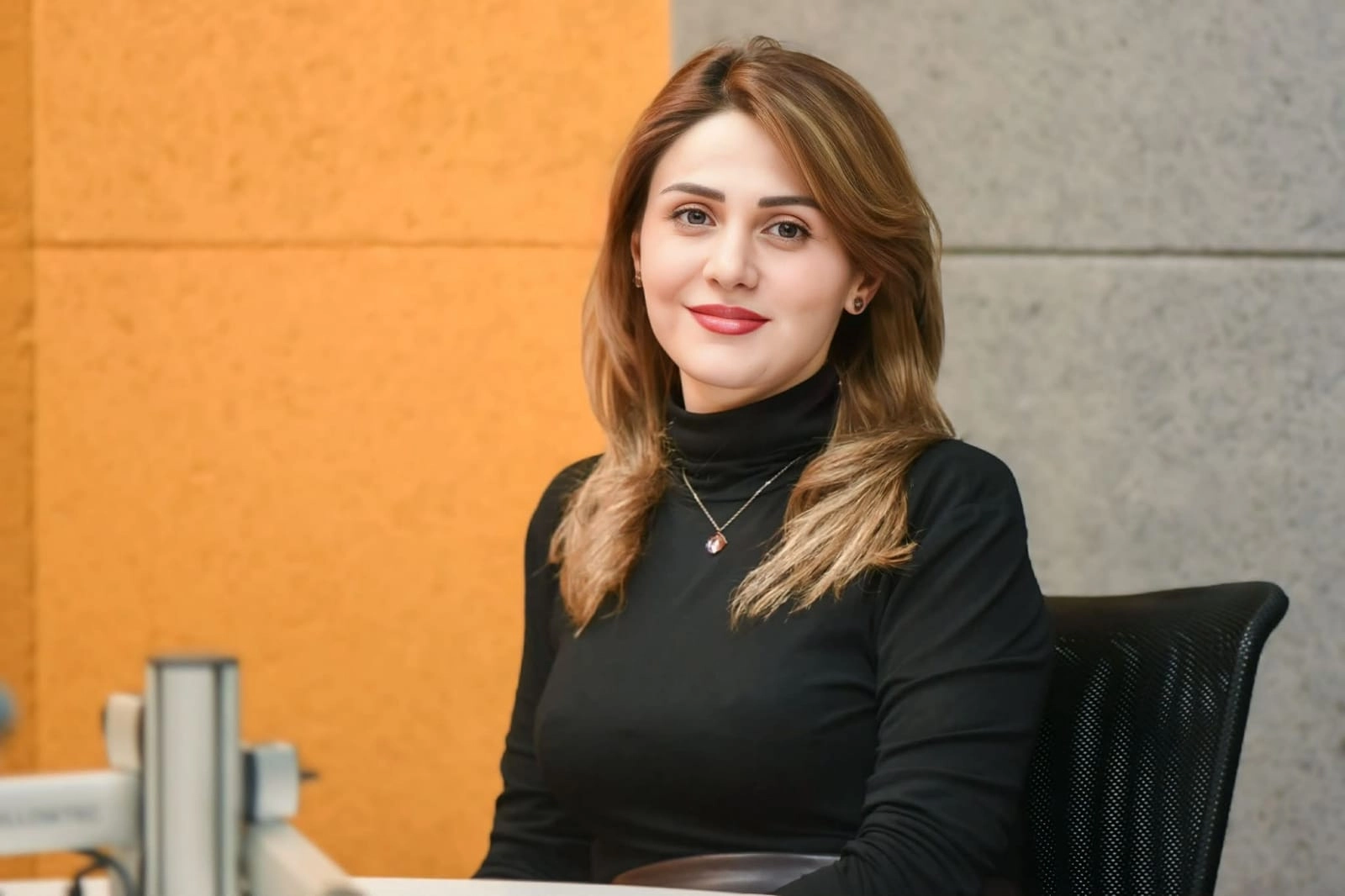
Օդանավով մեկ թռիչքից մենք կարող ենք ճառագայթման ավելի մեծ չափաբաժին ստանալ, քան մեկ հետազոտությունից
20 February
Հայաստանում ախտորոշիչ ծառայությունների զարգացման պատճառով է նաև, որ երբեմն թվում է, թե տարբեր հիվանդությունների թվի սրընթաց աճ կա, մինչդեռ դրանք ավելի հաճախ ու ավելի վաղ փուլերում է հնարավոր դարձել ախտորոշելը։Այն, որ ռենտգենը կամ ճառագայթային ախտորոշման որևէ այլ մեթոդ կարող է արագացնել հիվանդության զարգացումը, միֆ է։ Sputnik Արմենիայի հետ զրույցում այս մասին ասաց «Արաբկիր» բժշկական կենտրոնի ճառագայթային ախտորոշման ծառայության ղեկավար Մարինե Գրիգորյանը։ Նրա խոսքով՝ ճիշտ դոզավորման դեպքում նման բան անհնար է։
«Ռենտգեն ճառագայթներն այնպիսի ճառագայթներ են, որոնք նորմալ մարդու օրգանիզմը առօրյայում էլ ստանում է տարբեր տեղերից։ Օրինակ, օդանավով մեկ թռիչքից մենք կարող ենք ճառագայթման ավելի մեծ չափաբաժին ստանալ, քան 1 հետազոտությունից։ Այնպես որ, միֆ է, թե ռենտգեն ճառագայթի ադեկվատ դոզան կարող է նպաստել կամ արագացնել հիվանդության զարգացումը»,- նշեց նա։
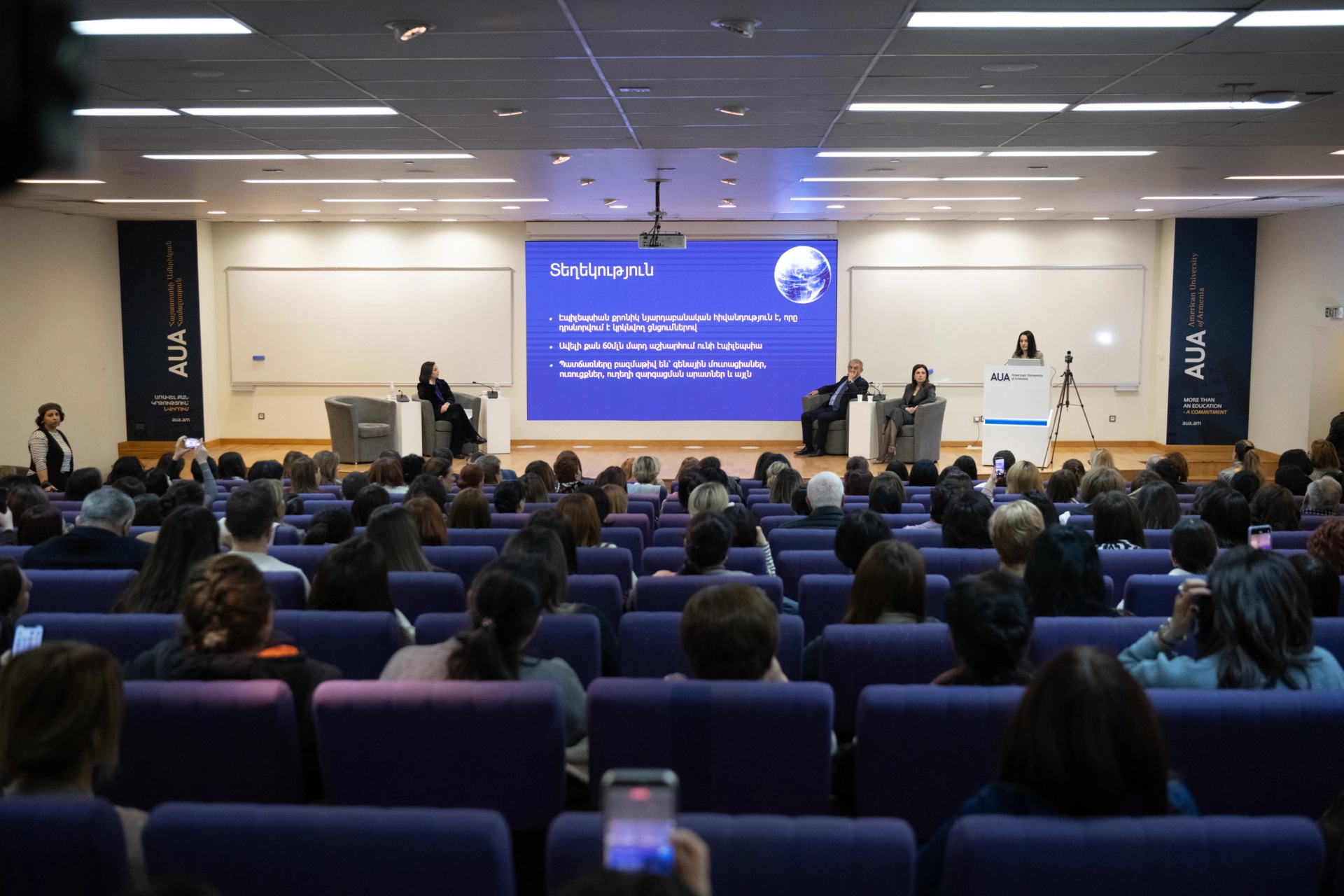
«Էպիլեպսիա` ստվերից դուրս» համաժողովն արդեն իրականություն է
09 February
Էպիլեպսիայի միջազգային օրն է այսօր: Այն քրոնիկ նյարդաբանական հիվանդություն է, որը դրսևորվում է կրկնվող ցնցումներով։ Աշխարհում ավելի քան 60 մլն մարդ ունի էպիլեպսիա։
«Արաբկիր» բժշկական համալիրի և «Կյանքի ճանապարհ» բարեգործական հիմնադրամի համատեղ ջանքերով կազմակերպվել է «Էպիլեպսիա․ ստվերից դուրս» խորագրով համաժողովը: Այն նվիրված է էպիլեպսիա ունեցող երեխաների առողջության, կրթության աջակցման և սոցիալական ինտեգրման կարևոր հարցերին: Համաժողովը համախմբել էր ոլորտի մասնագետներին, նախարարությունների ներկայացուցիչներին, մանկավարժներին, պացիենտներին, նրանց ծնողներին, լրագրողներին և խնդրով մտահոգ մարդկանց։«Հպարտությամբ ուզում եմ նշել, որ գրեթե 100-ի է հասել միջամտությունների թիվը, որ վիրահատությամբ բուժվել են երեխաներ, - նշում է «Արաբկիր» ԲՀ գիտական ղեկավար Արա Բաբլոյանը և հավելում, - Ղազախստանում վիրահատված երեխան, որը ամենօրյա ցնցումներով էր եկել Հայաստան, այսօր ցնցում չունի»։ՀՀ ԱՆ Անահիտ Ավանեսյանը նշեց. «Ամեն երեխայի համար մենք ապահովում ենք դեղորայքային բուժումը, բայց չենք բավարարվելու միայն դրանով։ Նոր տեխնոլոգիական հնարավորություններով ապահովելու ենք կայուն վիճակ։ Ծառայությունը թանկ է, բայց մեզ համար ամեն երեխայի կյանքն էլ կենսական է, լիարժեք զարգացումն էլ անգին է»։
Համաժողովին իրենց գործուն մասնակցույթունը ունեցան նաև «Արաբկիր» ԲՀ նյարդաբանության և էպիլեպտոլոգիայի ծառայության ղեկավար Բիայնա Սուխուդյանը, «Կյանքի ճանապարհ» բարեգործական հիմնադրամի ղեկավար Ելենա Բաղդասարյանը, ՀՀ կրթության, գիտության, մշակույթի և սպորտի նախարարության Հանրապետական մանկավարժահոգեբանական կենտրոնի տնօրեն Լիլիթ Մնացականյանը, ՀՀ ԱՆ մոր և մանկան առողջության պահպանման վարչության պետ Նունե Փաշայանը և առողջապահության նախարարության դեղորայքային քաղաքականության և բժշկական տեխնոլոգիաների վարչության պետ Մարինե Հարությունյանը:
Կոնֆերանսի ընթացքում ներկայացվել են էպիլեպտոլոգիայի ոլորտում վերջին տարիների ընթացքում արված աշխատանքները, բուժման ժամանակակից մոտեցումները։ Նմանատիպ միջոցառումները մեծապես կարևորվում են, քանի որ ուղղված հասարակության խոցելի խմբերի խնդիրների վերհանմանը, քննարկմանը, շատ դեպքերում` նաև լուծմանը։
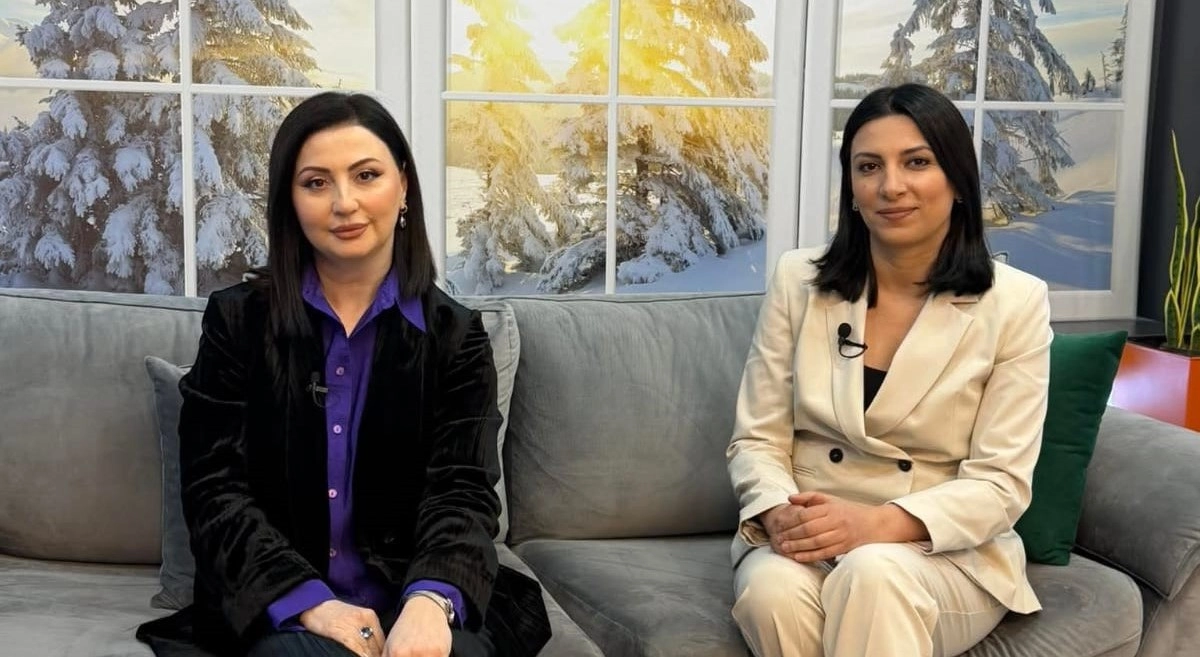
Էպիլեպսիան ոչ միայն բժշկական, այլև սոցիալական ու կրթական մարտահրավեր է
04 February
Փերտրվարի 7-ին` ժամը 10:00-15:00-ը, Հայաստանի Ամերիկյան համալսարանում (հասցե` Մարշալ Բաղրամյան պող., 40) կկայանա համաժողով` «Էպիլեպսիա՝ ստվերից դուրս» թեմայով:
Համաժողովը նպատակ ունի միավորել մասնագետներին, ծնողներին և ոլորտի պատասխանատուներին՝ բաց խոսելու, իրազեկելու և միասին գտնելու լուծումներ էպիլեպսիա ունեցող երեխաների կյանքի որակը բարելավելու համար։
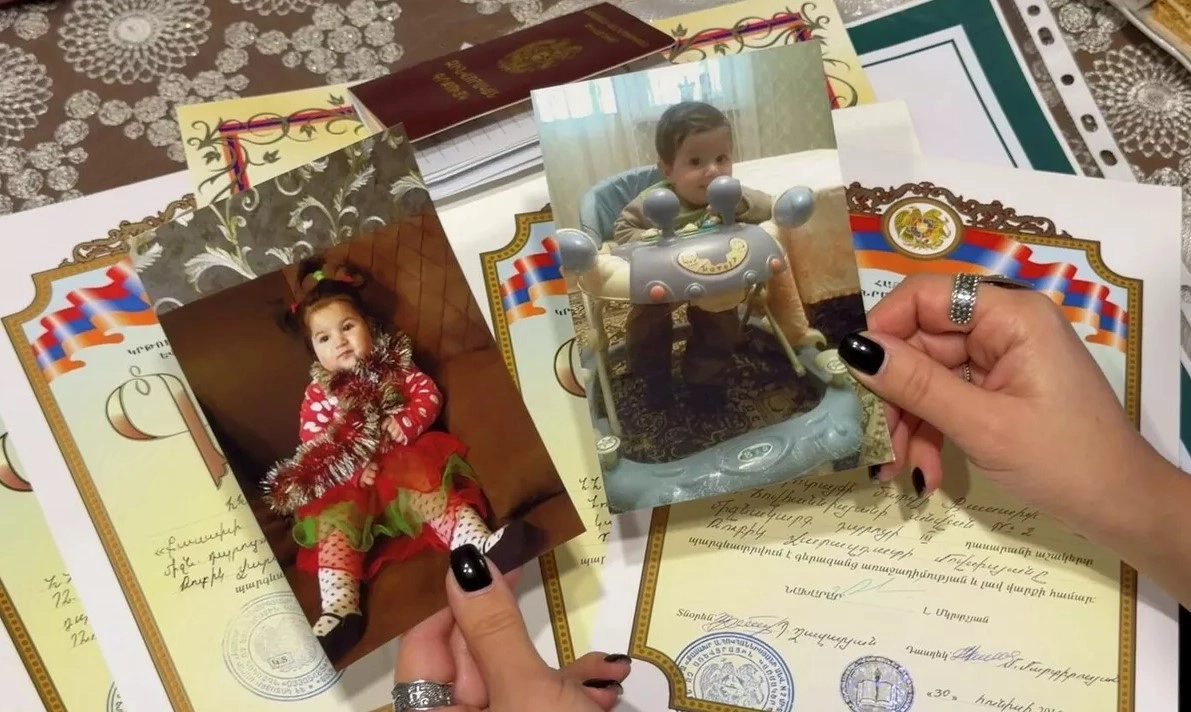
19-ամյա Ռուբիկն ու 6-ամյա Էվան երբևէ չեն քայլել.
29 January
Ռուբը արդեն մեկ տարուց ավելի է՝ չի էլ նստել։ Ընդամենը 15 կիլոգրամ կշռող 19-ամյա տղան մշտապես պառկած է նույն դիրքով, քանի որ մկանների դեֆորմացիան այլ բան թույլ չի էլ տալիս։
Գիշեր թե ցերեկ նրան թթվածնային հատուկ սարք է միացված, առանց որի տղան շնչահեղձ է լինում։ Ռուբիկն ու փոքր քույրը՝ Էվան, հազվադեպ հանդիպող գենետիկ հիվանդություն ունեն՝ սպինալ կամ ողնուղեղային մկանային ատրոֆիա: Ընտանիքի մեծ երազանքն է, որ ՍՄԱ-ի դեղորայքը հասանելի դառնա ոչ միայն 6-ամյա Էվայի, այլև նրա 19-ամյա եղբոր համար, որ գոնե շնչառությունը մի քիչ կարգավորվի, հիվանդության՝ օրեցօր վիճակը վատթարացնող փոփոխությունները կանգնեցվեն։
Նյութը՝ Sputnik Արմենիայի:
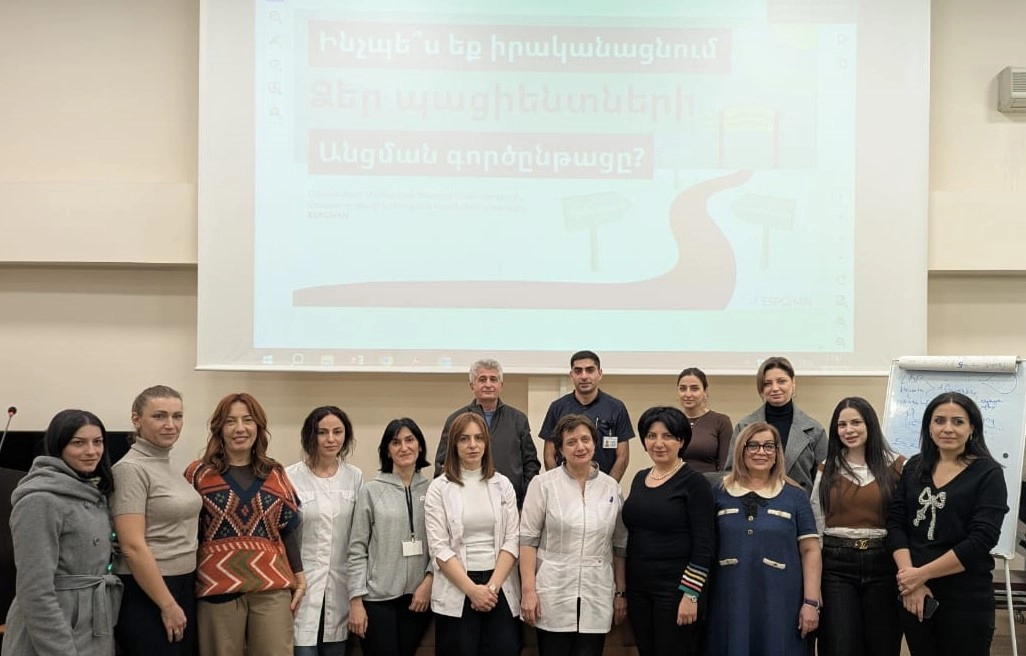
The Pediatric gastroenterology and hepatology section was established within the Armenian Pediatric Association
21 January
In October 2025, the Pediatric Gastroenterology and Hepatology Section was established within the Armenian Pediatric Association, bringing together pediatric gastroenterologists, endoscopists, and hepatologists from across the country. The subdivision currently unites 17 specialists.Professor Gayane Amaryan, Head of the Gastroenterology service of the Arabkir MC-ICAH , who initiated the creation of the section, noted, that the primary goals are to consolidate professional expertise to improve the quality of pediatric gastroenterological care, develop clinical, research, and educational programs, expand cooperation with International gastroenterology organizations (including ESPGHAN, NASPGHAN, and UEG), and strengthen collaboration with the Association of Adult Gastroenterologists of Armenia.The Pediatric Gastroenterology Service of the Arabkir MC–ICAH has maintained active cooperation with ESPGHAN for many years. This collaboration includes participation in Annual international conferences, support for ESPGHAN initiatives in Armenia, and the implementation of educational programs. Notably, ESPGHAN Eastern Summer Schools were organized in Yerevan in 2007 and 2017. GE service has also collaborated for 15 years with Professor Christian Braegger, a long-standing member of the ESPGHAN and the head of the Center for Gastroenterology and Nutrition Research at the Zurich Children's Hospital, who actively supports clinical practice and medical education in Gastroenterology at the center.It should be noted that the Gastroenterology Service of the Arabkir Medical Center currently provides long-term follow-up for more than 500 children with chronic gastroenterological and hepatological conditions up to the age of 18. After this age, patients require continued monitoring by adult specialists to prevent complications and improve quality of life. The proper organization of this transition period represents a significant healthcare challenge worldwide and requires coordinated involvement of both pediatric and adult gastroenterologists.This issue is directly addressed by the “Health Care Transition” campaign launched by ESPGHAN in October 2025, in which the Gastroenterology Service of the Arabkir MC is actively involved. The campaign’s slogan, “The transition process is not an ordinary transfer,” highlights the importance of a structured and patient-centered approach.As part of the campaign, the first stage was completed in November 2025, during which ESPGHAN educational materials were supplemented and translated into Armenian. As part of the second stage, in December 2025, the first meeting of gastroenterologists from the four Pediatric and the five Adult tertiary-level medical centers was organized by the Pediatric Gastroenterology Section and Armenian Pediatric Association.During the meeting, the translated ESPGHAN materials were presented, and discussions focused on their implementation in Armenia, localization challenges, and existing barriers in the transition process. Summarizing the event, Gayane Amaryan, Head of the Gastroenterology Service of the Arabkir MC, emphasized the importance of active participation and distributing the ESPGHAN translated resources by specialists and expressed hope that the ESPGHAN-initiated Health Care Transition process will continue to develop gradually and systematically in Armenia.
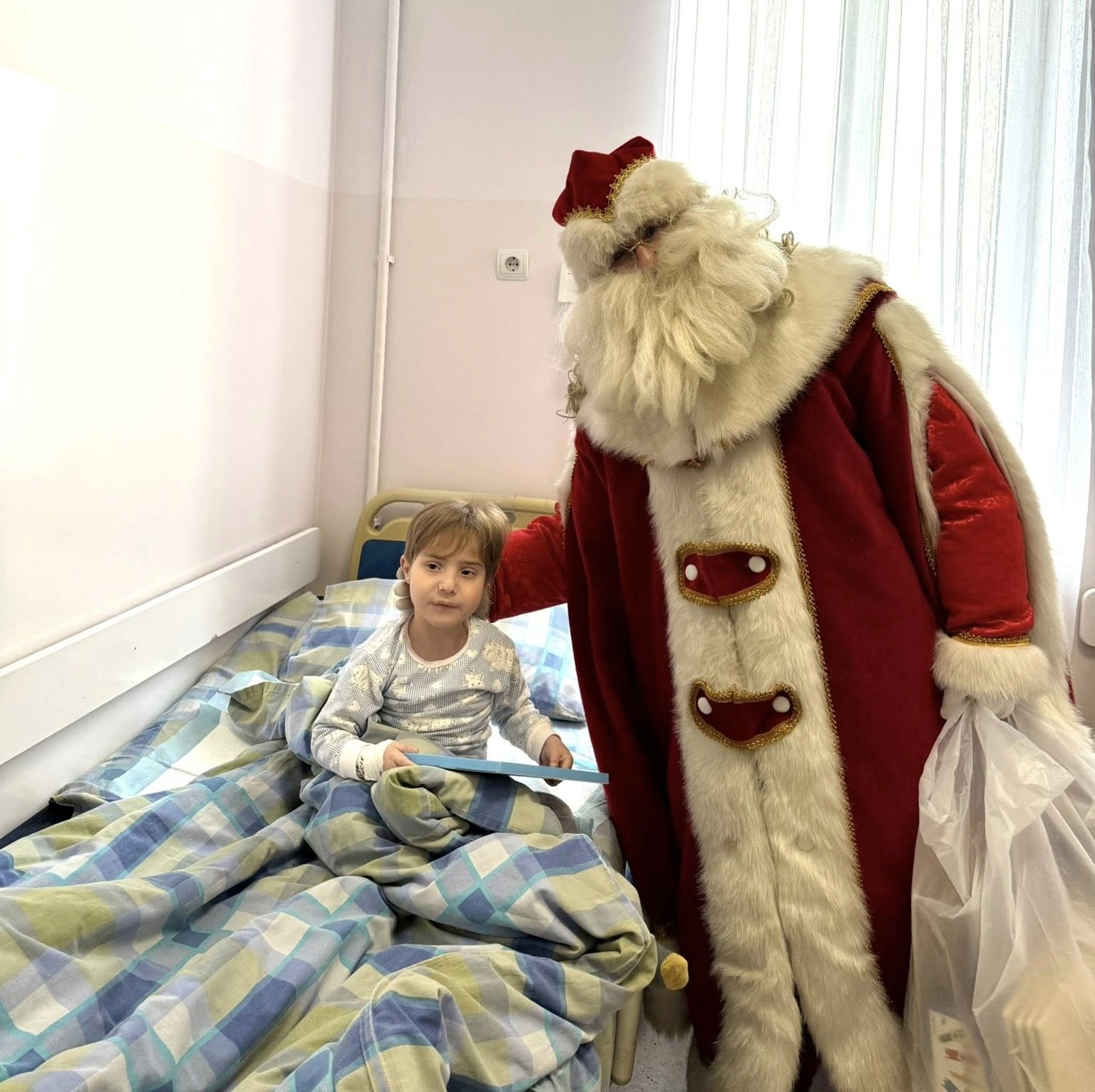
Ամանորի հեքիաթը լիարժեք չէր լինի առանց այս ժպիտների
02 January
Հունվարի 1-ին հեռավոր Լապլանդիայից «Արաբկիր» բժշկական համալիր էր ժամանել Ձմեռ պապիկը՝ լի պարկով և անակնկալ նվերներով։ Ամենուր հեքիաթային մթնոլորտ էր տիրում։
Փոքրիկներն այս պահի մասին հաստատ երազել էին։ Ձմեռ պապիկի հետ այս հանդիպումը նրանք կպահեն իրենց ամենավառ հիշողություններում…

 English
English
 Հայերեն
Հայերեն Русский
Русский